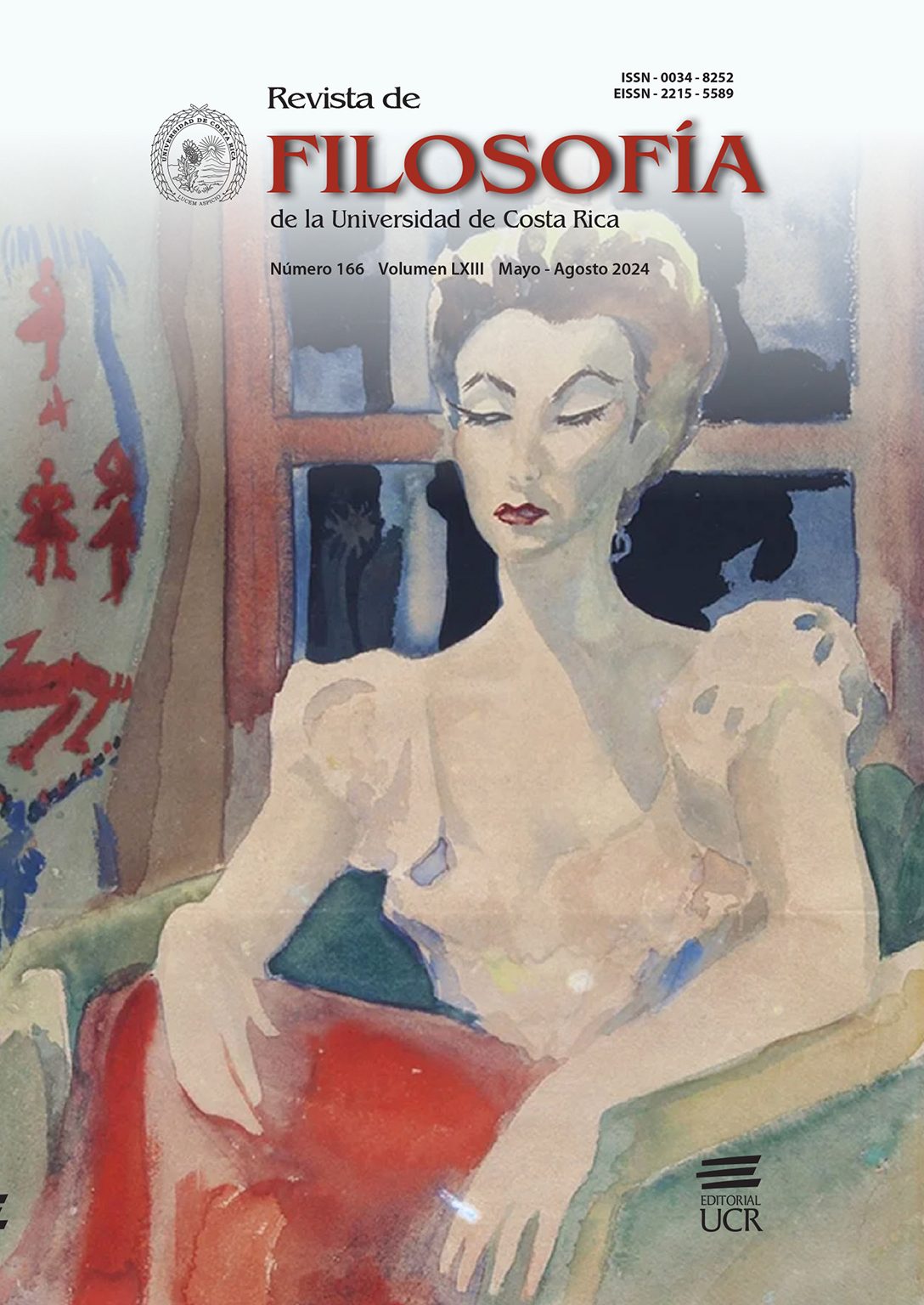Abstract
The work traces existential thought in Constantino Láscaris's "Mi primer testamento" (1956), displacing the article into a new literary aesthetic. Elements considered include the testament form, age, and name as ontological contents, and the gaze of others in the constitution of being. I argue that this literary creation aligns with the expressiveness of life, consenting to its openness to reason and the conversion of its author. The first part investigates metaphysical questions about being in Láscaris, and the second interprets this metaphysics through the lens of literary creation.
Comments

This work is licensed under a Creative Commons Attribution-NonCommercial-NoDerivatives 3.0 Unported License.
Copyright (c) 2024 Revista de Filosofía de la Universidad de Costa Rica

